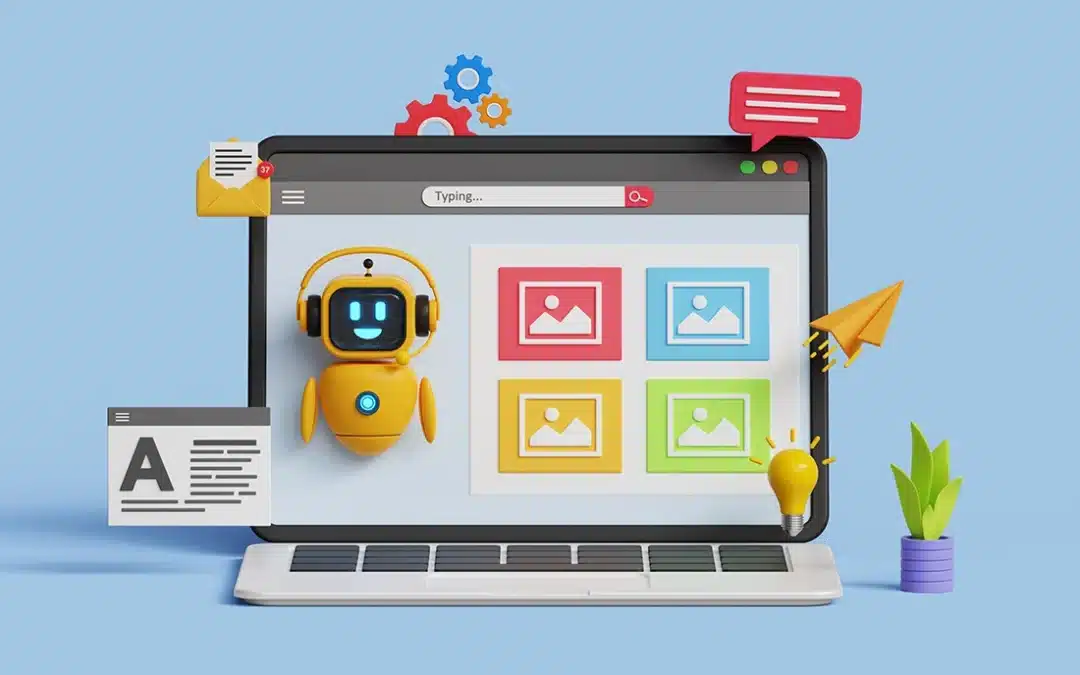
At the recent Tampa Bay Tech Q2 Member Social, held at the FIVE Labs facility, Sourcetoad’s VP of UX, Justin Davis, delivered a sharp Ignite-style talk that cut straight to the future of how consumers will interact with digital services. For his demo, Justin ordered a pepperoni pizza using a local AI agent, Claude, running on his personal machine. No websites. No apps. Just an AI agent calling a Domino’s Pizza API via something called an MCP server.
Justin’s demo offered a glimpse into a near-future where websites are optional, and MCP server use cases multiply across industries.
What Is the Model Context Protocol (MCP)?
Released by Anthropic in late 2024, MCP, or Model Context Protocol, is a universal standard for allowing AI agents (like Claude, ChatGPT, or others) to interact with external APIs, tools, and data sources in a secure and standardized way. Think of it as a USB-C for LLMs: one adapter to rule them all.
Instead of hardcoding bespoke connections between agents and services, MCP servers provide a way for AI to find and use tools as needed, on the fly. That means your digital service can be summoned by an AI agent without the user ever touching your website.
The Architecture Behind the Magic
Here’s how Justin’s lunch worked:
-
- He asked Claude to order pizza.
- Claude checked locally for an MCP server that understood Domino’s API.
- The MCP server initiated and fulfilled the order.
The AI didn’t need a browser, it just needed a pathway. These MCP server use cases enable something we’ve never had before: standardized, conversational access to third-party services via AI agents.
Why MCP Matters More Than Your Website
Traditional digital experiences rely on the user navigating your interface, remembering passwords, and clicking through a carefully architected UX. MCP inverts this. Agents handle the interaction and skip directly to the value.
While this is a dream for end users, for companies it presents a huge challenge. Unless your service is ready for MCP, it simply won’t appear in agentic workflows. Consumers won’t find you, and agents will find someone else.
The Consumer API Revolution
APIs have long been tools for developers, tucked behind the scenes of apps and services. But with the rise of agentic interfaces, we’re entering a new era, one where APIs are becoming the front door for consumers too. MCP doesn’t just allow machines to talk; it lets AI agents act on behalf of users, pulling in services as easily as we pull up a search bar. But there’s a catch: for this to work, your APIs need to be well-documented, structured for machine use, and easily discoverable. That means thinking about your API not as a backend utility, but as a user-facing experience—just one where the user is a highly capable AI assistant.
Who's Adopting MCP
Big names are already moving: OpenAI and Anthropic are incorporating MCP compatibility into their ecosystems. Zapier, MuleSoft, and Amazon are also laying foundations. This gives MCP servers enormous traction. Like the early web, it’s getting standardized fast.
In Justin’s example, had Domino’s lacked an MCP server, Claude would have defaulted to Papa John’s or DoorDash. Brand loyalty dies when access disappears. That’s the danger: In an agent-first world, switching costs collapse. Whoever shows up in the LLM wins.
How to Prepare
Search engines are becoming optional. Agents answer questions, complete tasks, and recommend services. The loss of web traffic is already visible in analytics. Without MCP exposure, you’re not just falling in rankings, you’re being excluded from the interface entirely.
-
- Inventory Your Data: Know what you have and how clean it is.
- Build APIs: Create secure endpoints that expose your core functionality.
- Wrap with MCP: Use available tooling to make those APIs discoverable and usable by AI agents.
Sourcetoad’s Approach
In projects with large enterprise partners, we’re increasingly called in to help expose internal tools and services to LLMs. The biggest common issues are the legacy systems that were never built with agentic interfaces in mind.
Our playbook often includes:
-
- Identifying high-value workflows for automation
- Creating secure API gateways
- MCP-wrapping those services for agent compatibility
We treat MCP like we once treated responsive web design: not optional, but essential.
Conclusion: Soon you’ll either be in the LLM or you'll be invisible
Justin’s point at the Tampa Bay Tech event wasn’t just provocative, it was strategic. MCP servers are quickly becoming the connective tissue of the AI-powered internet. As agents handle more tasks on behalf of users, they rely on MCP to discover and interact with services seamlessly. That shift changes the rules: interfaces designed for human users are no longer enough. Services need to be structured for agents that don’t click, scroll, or search the way people do.
This moment calls for a mindset shift. Instead of optimizing for screens, companies need to optimize for discoverability in machine-mediated environments. That means making your APIs accessible, agent-friendly, and MCP-compliant. The infrastructure for this change is already here, and the longer teams wait to adapt, the harder it will be to catch up.
Visit modelcontext.org to get started with MCP. Or talk to Sourcetoad about how to get your services ready for the agent-first future.
FAQ
What is the Model Context Protocol (MCP)? A standard that enables AI agents to interact with APIs and services in a secure, consistent way.
What are MCP server use cases in the real world? From ordering pizza to accessing financial data, MCP enables agent-driven actions without traditional UIs.
Why are MCP servers important for businesses? Without them, your services won’t appear in agentic workflows, making you invisible in future digital interactions.
How can companies start with MCP? Audit your data, build usable APIs, and wrap them with MCP tooling.
Is MCP going to replace websites? Not entirely, but many user interactions will bypass them via AI agents using MCP.


